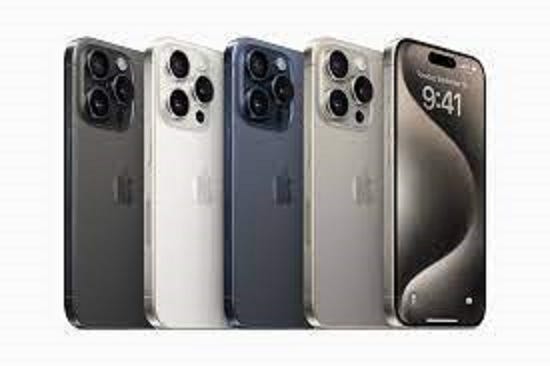The iPhone 15 Goes Understated with AI
Apple Chooses Evolution Over Revolution with Its AI Strategy
Apple is taking a different path from the rest of the tech industry when it comes to artificial intelligence. Rather than jumping on the generative AI bandwagon, the iPhone 15 and new iOS 17 software focus on subtle AI that makes everyday tasks smoother.
At yesterday's launch event, Apple showed off AI features that enhance regular phone use. A new voice isolation option uses machine learning to cut out background noise on calls. The upgraded camera leans into AI for automatic subject detection and turning any photo into a portrait. Even the on-device keyboard suggests predictive text powered by AI.
These changes are incremental, not revolutionary. But they demonstrate Apple's philosophy of integrating AI seamlessly into its products. The company chooses not to hype flashy generative features like chatbots or image generation. While those tools grab headlines, Apple aims to boost convenience and usability for customers.
The iPhone maker has a track record of perfecting existing technology rather than chasing the latest fad. For instance, Apple was years behind bringing 5G connectivity to iPhones. But it waited until the infrastructure was ready for wide adoption. With generative AI, Apple may be making a similar calculated bet.
Generative AI Still Faces Challenges
Tools like DALL-E 2 and ChatGPT hint at the creative potential of generative AI. But the technology remains imperfect and controversial. Images can propagate harmful stereotypes and misinformation. Text results risk plagiarism and inaccuracy. It will take time to develop robust systems that mitigate these issues.
Rather than risk blowback from launching half-baked features, Apple is focusing elsewhere. The company likely has generative projects underway, but won't unveil them until the technology and ethics are buttoned up.
Apple's Specialty: Intuitive AI
While skipping the AI hype for now, Apple plays to its strengths. Its interface design has always focused on simplicity and ease of use. AI that enables more seamless experiences fits Apple's DNA.
Features like Live Captions, which automatically adds subtitles to any audio on an iPhone, showcase this philosophy. The addition doesn't reinvent the device, but makes it more accessible and helpful. Other incremental AI changes like better Dictation transcription exemplify the approach.
Analysts say Apple's knack for intuitive AI could give it an edge. For instance, new adaptive audio capabilities use machine learning to blend AirPod sound with ambient noise. This more natural listening experience could become the standard other companies copy.
The same goes for the iPhone's improved camera zoom and low-light performance. By finessing these core use cases with AI, Apple delivers practical value for customers. And it motivates upgrades by highlighting aspects like photography that drive purchasing decisions.
What's Next for Apple and AI
Apple will eventually integrate more ambitious AI into its products, on its own terms. There are reports that the company is developing its own generative AI under the codename Ajax. But Apple will likely package this technology into a product or service distinct from competitors.
In the meantime, the new A17 processor gives iPhone 15 models more on-device AI capabilities. So Apple is still equipping customers to use cutting-edge third-party apps like generative tools. The company just isn't ready to fully embrace generative AI firsthand.
For Apple, AI is a marathon not a sprint. Rather than reactionary releases, it will keep making deliberate progress. Upcoming iOS 17 software extends helpful predictive text and voicemail transcription powered by AI. And the Apple Watch "double tap" gesture, controlled by machine learning, points to AI-enabled innovations in other product lines too.
While rivals chase generative buzz, Apple is playing the long game. Its pragmatic approach to AI may not inspire headlines. But it results in technology people actually want to use, not just try as a novelty. Rather than touting AI for marketing, Apple bakes it in to solve real problems. That practical ethos will serve the company and its customers well in the years ahead.






